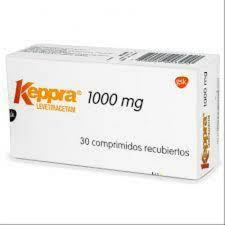
Even when you have figured out the correct remedy out of the
thousands available, you know what the little numbers and letters mean
(6x, 6c, 30c…) how do you know which potency is the suitable one?
The only thing all homeopaths agree on is that it depends on the case.
However, some homeopaths only use high potencies and some others rarely
go over 30c. The crazy thing is that both methods can be highly
successful!
Does it mean it doesn’t matter which potency you use?
Not for a minute! Like everything else in life, you attract what you
believe in, so if you believe that high potencies work better, you will
attract patients who need high potencies!
I tend to sit on the
fence on this and just follow the patient’s lead, so here is a a
guideline on potencies. Please remember that chronic conditions and high
potencies should always be handled by a homeopath!
Choosing high versus low potencies
Simply stated, the choice depends on the health and vitality of the
patient, the nature of the illness that they have, and their response to
that illness.
Consider higher potencies:
• In those with good strength and vitality
• In those not overly sensitive to medicines
• In those with a history of positive responses to remedies
• When the illness is acute or sudden
• When the patient is responding vigorously to the illness.
Consider lower potencies:
• In those who are sickly with poor vitality
• In those who are over-sensitive and become ill with every medicine they take
• In those with a history of difficult responses to remedies (such as easy aggravations)
• When the illness is chronic or slow
• When the patient has an indolent response to the illness.
How often to repeat the remedy
Now that you have chosen the remedy and the potency, how often should it be repeated? This is another area of conflicting opinions. It is clear, however, that there is a general principle at work when making this decision, namely that the frequency of repetition depends upon the response of the patient. Simply stated, as long as most patients are improving, it is not necessary to repeat the remedy. Please note that this applies to “most” patients. There are some where more frequent repetitions will be helpful and others where progress seems to be hampered. It depends on the patient, the type of illness they have, the potency of remedy being used.
Consider more frequent repetitions:
• In acutely ill or injured patients: These patients need more
frequent repetitions whether the remedy is high or low potency. Don’t be
afraid to repeat or change remedies frequently in this situation.
•
When lower potencies are being used for chronically ill patients:
Patients suffering from chronic (long-term) illness often need lower
potencies repeated frequently to both obtain a good result and to avoid
aggravations.
Consider less frequent repetitions:
• When
higher potencies are used to initiate treatment in chronically ill
patients: This is the situation where aggravations are common. It is
necessary to wait after giving a high potency to such a patient until it
is clear what their response will be and how long it will last.
(Chronically ill patients who start on lower potencies repeated
frequently often do well with higher potencies repeated frequently as
time goes by. It is not usually a good idea to start these patients with
such repetitions of higher potencies.)
• In patients with known
over-sensitivity to remedies or other medications: Caution must be used
repeating remedies of any potency, especially high, with these
patients. An exception to this rule is that even over-sensitive patients
usually tolerate repeated doses if they are acutely ill or injured.
5G ADHD alternative medicine; asthma; autism autism; autoimmune black opal; boys candida; chemical exposure corona virus corona virus; depression detox diabesity diabesity; diabetes
diabetes; diet eczema; flu; gemstone remedies; gemstones; glasgow glyphosate gut-brain connection hashimoto; holistic homeopathy homeopathy;
hypothyroidism; IBS immune system leaky gut lockdown multiple chemical sensitivities nutrition potty training puberty skin issues; sleep supplements thyroid; tinnitus



No spam, notifications only about helpful homeopathy tips, homeopathy courses and new products!
The health benefits of Vagus Nerve Stimulation Vagus nerve stimulation (VNS) can offer several benefits, particularly for conditions like epilepsy, depression, and stroke recovery. It

HOMOTOXICOLOGY IS THE EVOLUTION OF HOMEOPATHY Homotoxicology is the study of what toxins do to the human body. This discipline was invented by Dr. Reckeweg

WHAT IS HOMOTOXICOLOGY AND HOW DOES IT WORK? Homotoxicology is the branch of medicine that seeks to identify the toxins in the body, then aid

IS HOMEOPATHY EQUALLY EFFECTIVE WHILE ON MEDICATION? A CASE OF EPILEPSY This is a bone of contention among homeopaths: I know some homeopaths who will